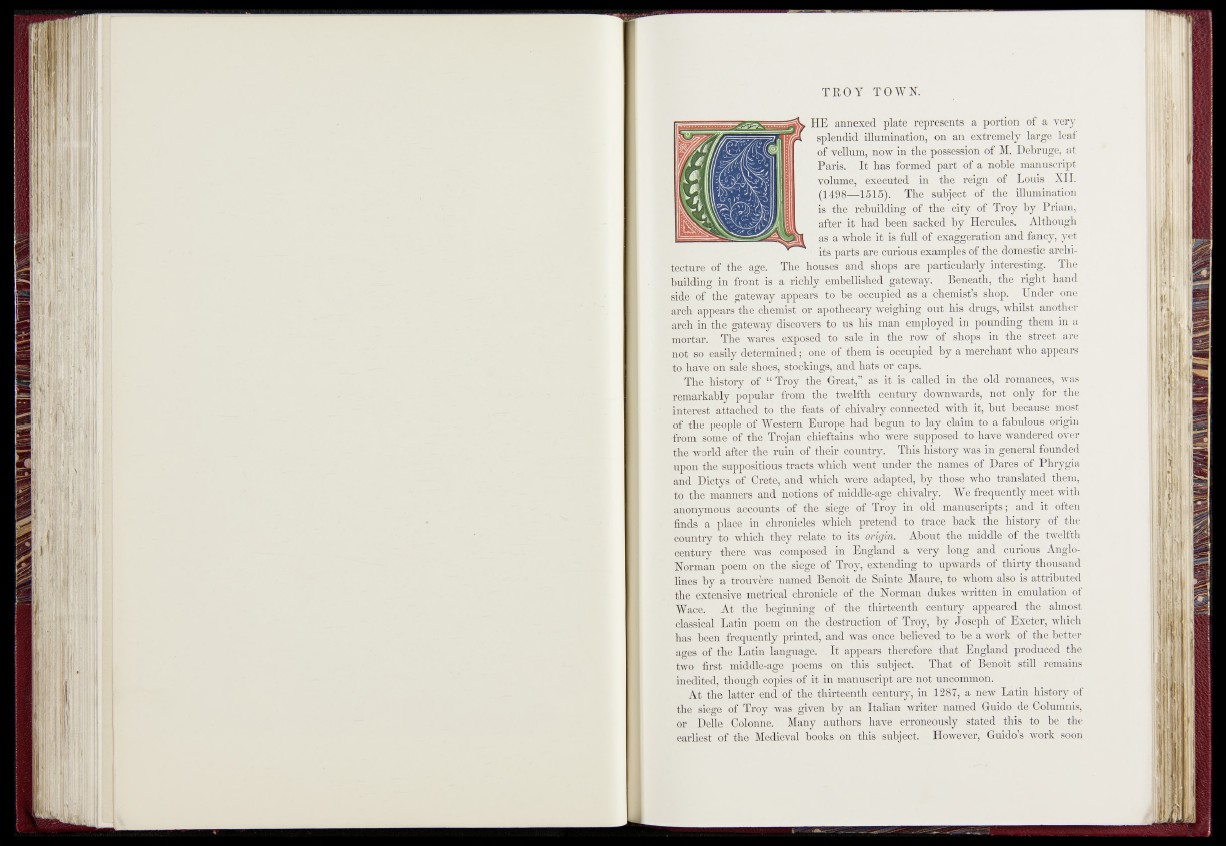
TM#Y T H | 1
PIE’ fëmrexe<ÿr'p1 a^portr^-pf a very
on an! extremëlÿ >wge leaf
M. Debruge, at
Iw B Saj' It ^P'^'oble manuscript
I illumination
fTro^ By Priam,
& Altfijp f c j
amfenEmraffi efa:
p~* ils parts arc!lir
Ppturc ofk‘thè ageï- ’TO-boii-.cs The
jnnilding ix^rKù'mis f nè^lâgfit^vbari<1
side of the gat ew ay appears -
arch appear^ the cljlffm^or j$ o tlu ( fMtlWî
ta^li. i iu a
mortar.
not so easily determined
to have on sale shoes, stockings, and hats or caps.
j jG H B H ^ B “ Troy the'
Bmtarkably s popular from ’"dow m\ urd-,
B We-dem-I^ropo E^^iiigim^-^Faƒ origin
•from | | | i ^ o f the.Trojan chieftains w i n i a u j l ' e r e ( l i o v e n ^
'the workpafter the ruin of their, c|s|âtry. ^BÆfeTO^was
“upon P 'suppositious tracts which wont
End l3i5£yV o f (fèefcand which'' were
^B®he-. manners and notions of middle-age chivalry. A\e Trecfuyntiyjrmet*witli
ànonÿhiôus/accounts- of the siege of P^iy^®i old maii’li3-s(^OT^^Band^^tj* o(ten
ÿ&nds a plâpé. in chronicles which pyefen/i lo ^ ^ ^ b a t- k ^ ^ ^ ^ jstQrv’' of-the
B u n try to which thfey; relate1 toYts
Kntury there, was composM in England“'^, - ^ r y ^M ^V an d ^ ^ jo u if Anglo-,
yl^prman poem on the siege "of 'i*roj,' extending to -hj^wiird-i of tliirty thousand
'lines by a trouvère named E.enqit dé S^lj^Mauro.'To''whom also is^ ^ ^ uK 'd
the extensive metrical chronicle oCthe. Hormah- dukes | | | | | | | | | 1 einulaMon of
Ylace. At the beginningTof the thirteenth lÿjrifary_‘ a n ^mTOg£j| B almost
classical Latin poem on'#he destruction of -Troy, ‘^Æ f .^ r|-L>>lii( h
has been frequently printed, and was once |Bgli'èyed'1ifô -be f e s ^ ^ ^ ^h'c botteri
ages of the Latin language. It appears therefore rlmtf England pr »lu* .1 th.
.ftïsvo first middle-age poems*, oh >,this subject. That still remains
'■ inedited, though copies -of it in -manuscript'' a r e® ;’.uncommon. -
v, At the latter ehliiof the thirteenth 5cé£tuJy;,' in 1287, .ajngw Latin history of
the siege of Troy was given By an Italian wfifer named Guido dé Columnis,’
or Delle* Colonne. Many auth&^| have i]e^fc$gfep^ stated tips1’, to be the
earliest of the' Medieval books on -this suB|^t. < However, Guidons' ,v?ork soon